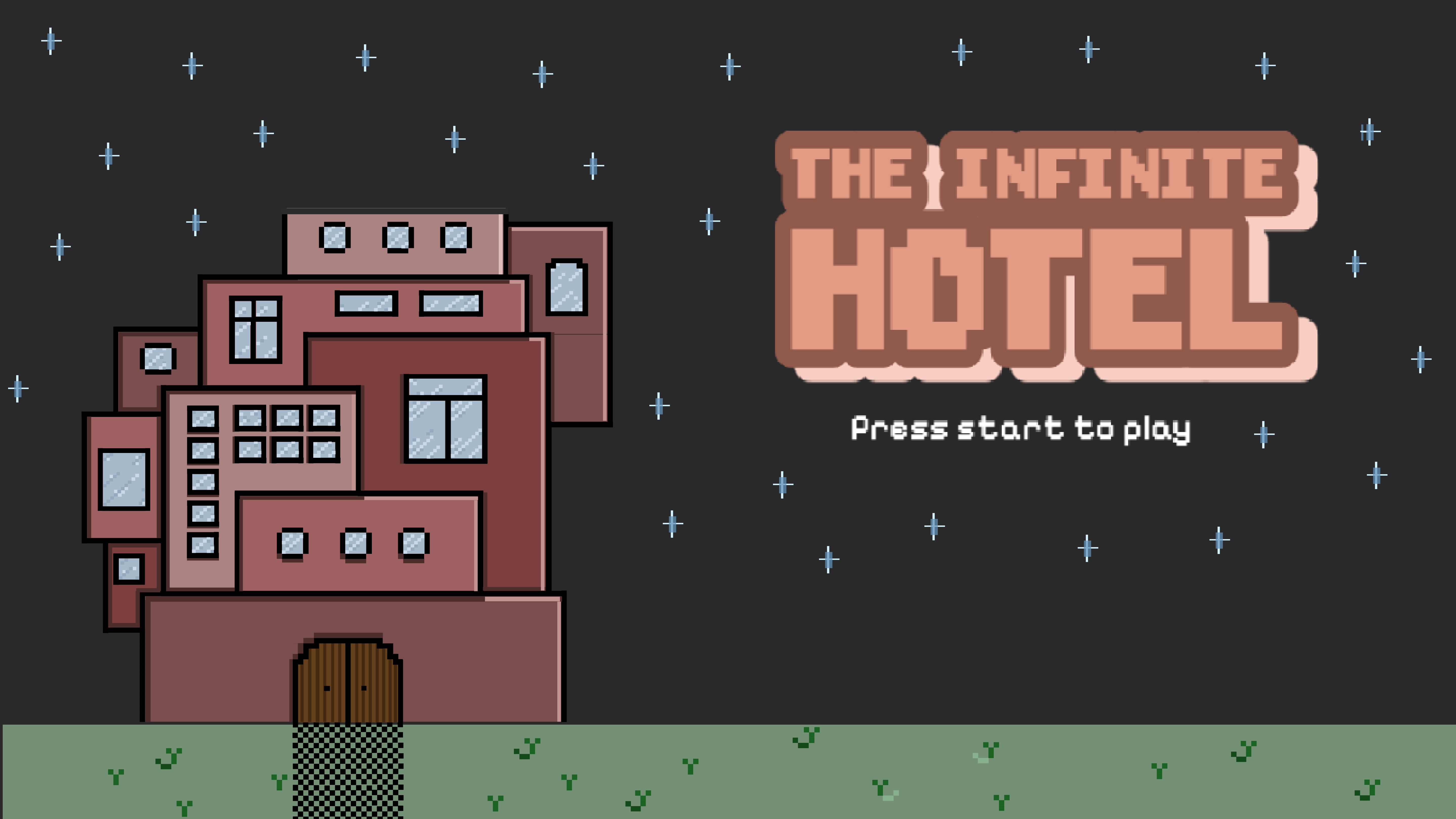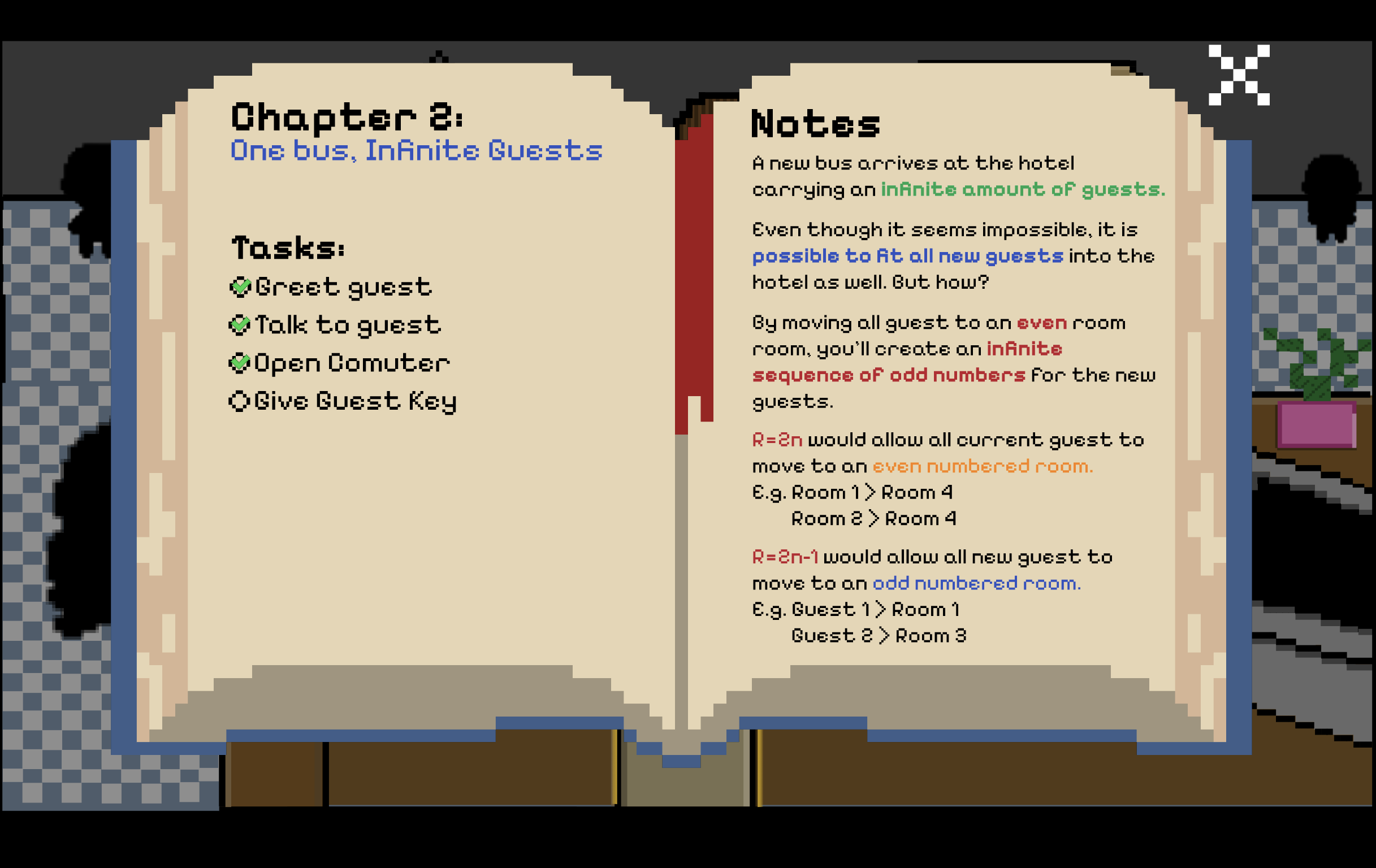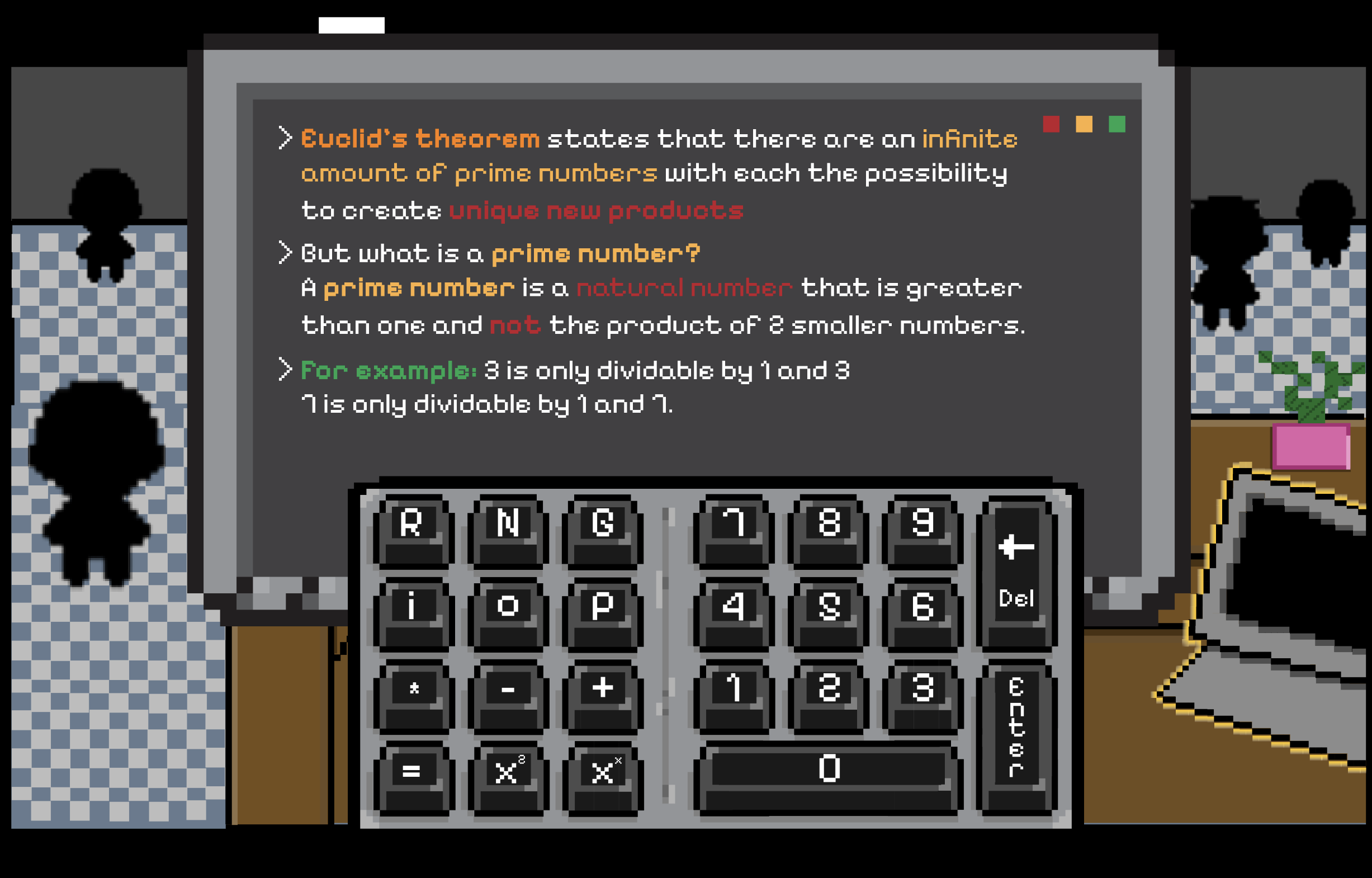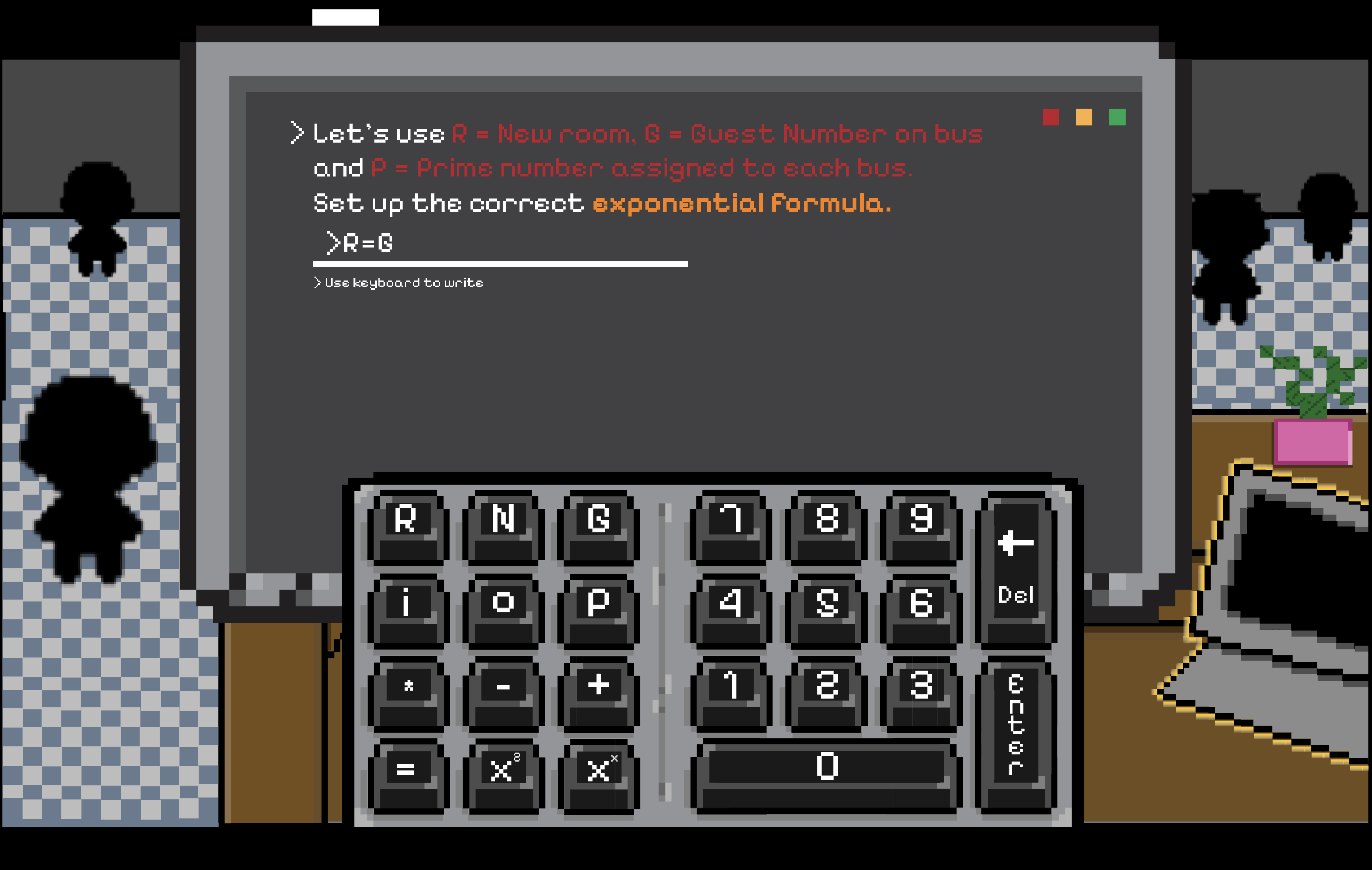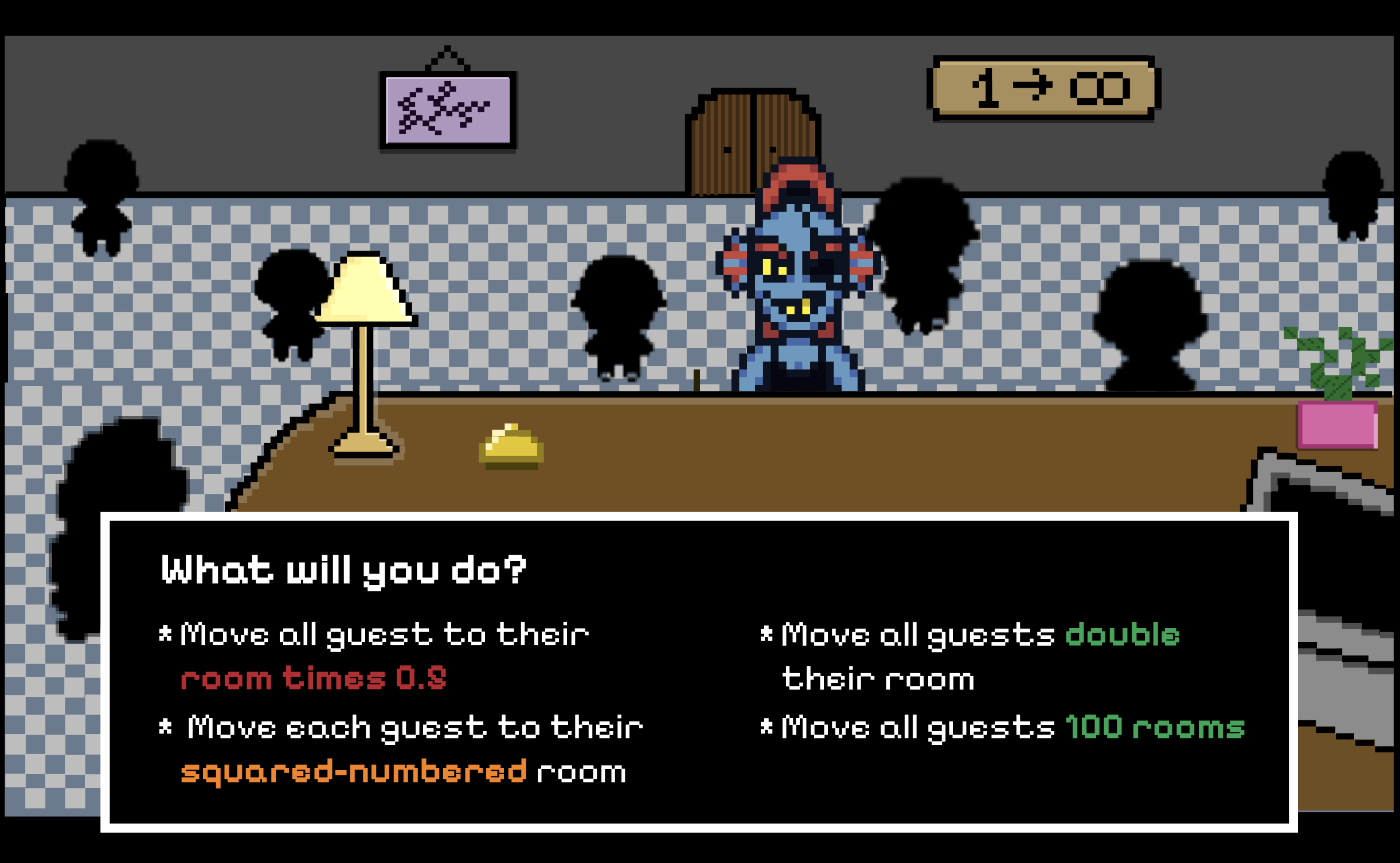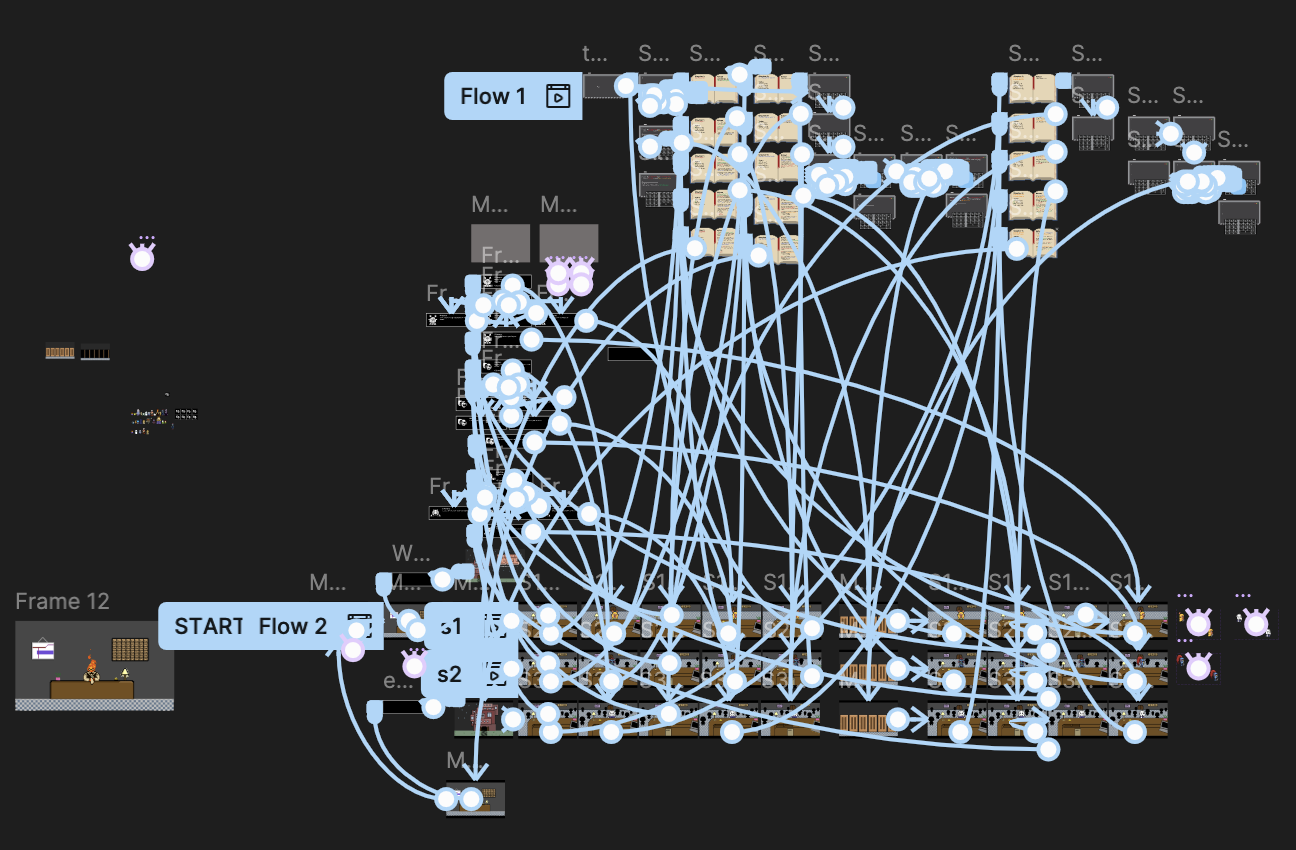Understanding the case
The hardest part of this project was understanding the math. A part that I found particularly fun but
tough.
About the math
The Hilbert Hotel Paradox, introduced by German mathematician David Hilbert, is a thought experiment
that illustrates the counterintuitive nature of infinite sets. Imagine a hotel with infinitely many
rooms, all occupied. Surprisingly, it can still accommodate new guests! For example, to make room
for one new guest, each current guest moves to the next room (Room 1 to Room 2, Room 2 to Room 3,
and so on). Even if an infinite number of new guests arrive, they can be accommodated by shifting
each guest to double their room number (Room 1 to Room 2, Room 2 to Room 4, etc.), freeing all
odd-numbered rooms. This paradox highlights the strange properties of infinity, where “full” doesn’t
mean “no space left.”
Game Setup
This element gives the user a qoute with 2 words that they can change by clicking on the words. Users
will actively change language in this exercise. The word "depression" will be changed into "a sad
and empty feeling" and "social-anxiety" will be changed into "behaviour and emotions when going
outside". Showcasing how easy it is to impactfully change your language.

 Go back
Go back
